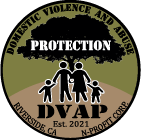For survivors facing the daunting prospect of a restraining order hearing, the question of whether they can bring someone with them is a crucial one. This blog post aims to provide insights on this matter, recognizing the unique challenges and concerns that survivors of domestic abuse may encounter as they seek legal protection.
Can I Bring Someone With Me to the Restraining Order Hearing?
In California, you are allowed to bring a person with you to the restraining order hearing. This is known as a “support person.”
]However, keep in mind that a support person cannot speak for you in court. Only your lawyer or yourself can do that.
It’s important to note that regulations regarding who can accompany an individual to a restraining order hearing may vary depending on the jurisdiction.
Before the hearing, it’s advisable to check with the court or legal counsel to understand any specific guidelines or restrictions related to bringing a support person to the hearing.
The Importance of Support
Emotional Support
A restraining order hearing can be an emotionally taxing experience, particularly for those who have endured domestic abuse. Having a trusted companion by your side can provide invaluable emotional support, offering reassurance and comfort during what is often a stressful and anxiety-inducing process.
Whether it’s a friend, family member, or advocate, having someone there to offer a listening ear and a source of strength can make a significant difference.
Practical Assistance
Beyond emotional support, bringing someone with you to the hearing can also provide practical assistance. This may include taking notes for your personal use during the proceedings, or simply being a supportive presence throughout the hearing.
Such practical support can alleviate some of the burdens associated with navigating the legal process, allowing the individual to focus on their testimony and the legal aspects of the hearing.
Wrapping It Up
The decision to bring someone with you to a restraining order hearing is deeply personal and may depend on a variety of factors, including emotional needs, practical considerations, legal requirements, and safety concerns.
For survivors of domestic abuse, the journey through the legal process can be challenging, and seeking support from trusted individuals or professional services can be instrumental in navigating this difficult terrain.
Disclaimer: This blog post provides general information about domestic abuse. It does not provide legal advice. Victims should consult with a legal professional for advice related to their specific situation.
Are You Experiencing Domestic Violence or Abuse? DVAP Is Here To Help
Domestic Violence and Abuse Protection, Inc. is a non-profit organization committed to protecting the victims of domestic abuse.
When restraining orders are not enough, we are there to provide the determined protection you deserve. We are located at 3900 Orange St. Riverside, CA. Call us at (951)-275 8301 (24 hours). Alternatively, you can email us at admin@dvapriverside.org






